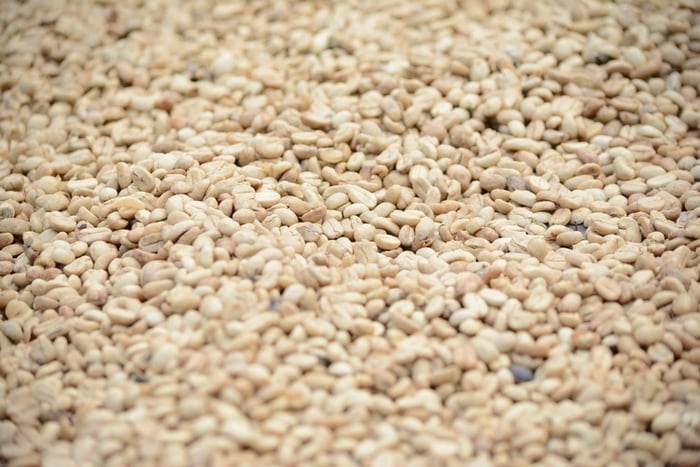Sesame Seeds Benefits And Side Effects
Sesame seeds, which is most used in home recipes and especially in making Chikki on Makar Sankranti, is beneficial in many ways due to its special properties. Its seeds also have many health benefits. They provide vitamins, minerals, natural oils and organic compounds including calcium, iron, magnesium, phosphorus, manganese, copper, zinc, fiber, thiamin, vitamin B6, folate, protein and tryptophan. . It is also a panacea for heart related diseases. Let’s know the benefits of sesame seeds..
Sesame oil is also used in abundance. Its seeds are produced from a plant of the genus Sesamum and its scientific name is Sesamum indicum. Sesame seed is considered to be the oldest seed oil crop in the world and has been cultivated for more than 3500 years. It is mostly grown in Africa and India. Sesame seeds are very small, 3–4 millimeters long and 2 millimeters wide. There are three types of sesame, white, red and black. Black sesame seeds as a medicine in Ayurveda.
Sesame Health Benefits

1). For Brain
The use of sesame reduces mental debility, due to which you remain free from stress, depression. By consuming a small amount of sesame seeds daily, you can get rid of mental problems.Sesame seeds contain many nutrients that have stress relieving properties. Minerals such as magnesium and calcium present in it act as an antispasmodic (a medicine used to relieve or prevent spasms) by regulating muscle function.
2). For high blood pressure-
The natural oils found in sesame seeds help in reducing high blood pressure. This reduces the stress on your cardiovascular system and helps prevent various heart problems. Plus, magnesium is known to reduce hypertension and sesame seeds are loaded with this essential mineral. By consuming it, you get 25% of the daily requirement of magnesium.
3). For hair
Use of sesame can prove to be a boon for hair. By using sesame oil or by eating sesame in small quantity daily, hair fall stops prematurely. It also strengthens the hair.Sesame seeds contain essential fatty acids like omega-3, omega-6 and omega-9 which help in hair growth. Sesame seed oil conditions the hair and keeps the scalp healthy, thus helping to grow hair.
4). For cancer
Essential vitamins and minerals are found in sesame seeds. The antioxidants present in sesame seeds are known to reduce the risk of cancer. Sesame seeds also contain phytates (this is a compound) that act as an antioxidant and reduce the effects of free radicals. Sesame seeds include leukemia, breast cancer, lung cancer, pancreatic cancer, colorectal It is also known to reduce cancer and prostate cancer.
5). For dry cough-
In dry cough, taking sesame with sugar candy and water is beneficial. Apart from this, heating sesame oil with garlic, putting it in the ear in lukewarm form provides relief in earache.
6). For diabetes-
Elements present in sesame seeds, including magnesium, are known to reduce diabetes. In addition, it has been shown that sesame seed oil can positively affect the effectiveness of various diabetes medications in patients with type 2 diabetes. It improves the effectiveness of the drug and regulates the insulin and glucose levels in the body thereby helping to normalize the symptoms of diabetes.
7) For Teeth –
Sesame is also beneficial for teeth. Chewing sesame after brushing in the morning and evening strengthens the teeth, as well as supplies calcium. You know how beneficial calcium is for teeth.
8). For strong bones-
Sesame seeds contain essential minerals like zinc, calcium and phosphorous, which can be great for your body’s bone health. These minerals help build new bones and strengthen and repair bones.
9). For mouth ulcers-
If you are troubled by mouth ulcers, then apply sesame oil, after mixing rock salt in sesame oil, the blisters start getting cured.
10). For anemia
Sesame seeds, especially black sesame seeds, are rich in iron. Therefore, people suffering from anemia are advised to consume it. Sesame seeds contain an organic compound called sesamol. It protects DNA from the harmful effects of radiation, and you can be exposed to radiation from many accidental sources – such as chemotherapy and radiotherapy (during cancer treatment).
11). For cracked heels –
By heating sesame oil on cracked heels, mixing rock salt and wax in it, the heels become soft and soft along with healing quickly.
12). For skin –
Sesame oil is very beneficial for the skin. Sesame oil provides essential nourishment to the skin and retains moisture in it. It enhances the beauty.Sesame seed oil can give you glowing skin. It maintains the elasticity of the skin keeping the skin soft and supple. It helps in tightening the facial skin, especially the area around the nose and prevents the pores from growing.
13). For eyes-
Sesame is a good medicine for eyes, it can avoid problems like pain in the eye, night blindness, red eyes etc.
Side Effects Of Sesame

Another common side effect of consuming sesame seeds is an allergy. Some people may be allergic to its consumption. Different types of allergies such as digestive problems, swelling of the eyes, runny nose, asthma etc.
Some people may suffer from appendix infection due to excessive consumption of sesame seeds.
Excess consumption of sesame seeds can cause irritation in the stomach and colon.
These light sesame seeds are loaded with calories and saturated fat. And if you are thinking of losing weight, then you should avoid excessive consumption of them.
It is believed that eating sesame seeds during the first trimester of pregnancy is bad for health. Sometimes a miscarriage can happen.
In summer, you should consume sesame with a little care so that its hot effect does not affect your health. For this, soak sesame seeds and consume it. By doing this, your body remains hydrated and also gets coolness from inside. Apart from this, you can consume sesame seeds in smoothies or juices by putting them on top. Also, you can eat sesame seeds mixed with any other dish. This gives many benefits to the body.
Different uses of sesame seeds
Sesame seeds can be used in many ways. They can be consumed in the following ways:
1. Sprinkled as a Topping on Salads or Stews.
2. Mixed in bread.
3. Make a thin paste .
4. Blended into a powder and mixed with various smoothies.
FAQS:
How many sesame seeds should you eat in a day?
Sesame seeds – 1-2 teaspoon once a day. Sesame seed capsules – 1-2 capsules twice a day. Sesame oil – 2-3 teaspoonful once or twice a day.
Does sesame seeds cause gas?
If you get bloating frequently, make sure you are eating magnesium-rich foods. Common magnesium-rich foods include collard greens, chard, kale, spinach, pumpkin seeds and sesame seeds. Soaking the seeds and nuts for two to six hours will make them easier to digest.
Are Sesame Seeds a Superfood?
Both the seeds and the oil are good sources of some important nutrients such as manganese, copper, calcium, magnesium, iron, phosphorus, vitamin B1, zinc and dietary fiber. Sesame seeds also contain unique nutrients that may have some superfood-worthy effects on our health and wellbeing.
What happens if we eat sesame seeds daily?
Consuming sesame seeds daily in the right quantity can be beneficial. The inclusion of sesame in the diet gives energy. Along with this, sesame seeds are rich in nutritious elements like fiber, iron etc.
Can you eat raw sesame seeds?
Sesame seeds can be eaten raw. If you want to enhance the taste and flavor, then these seeds can be eaten even after roasting. Sesame seeds can be easily incorporated into many dishes.
Read more
- Right Way To Drink Water
- Interesting Facts About Rainy Season
- How To Treat Cataract – Causes, Symptoms,Home remedies
- Chia Seeds Benefits,Uses, Recipe,Side Effects



